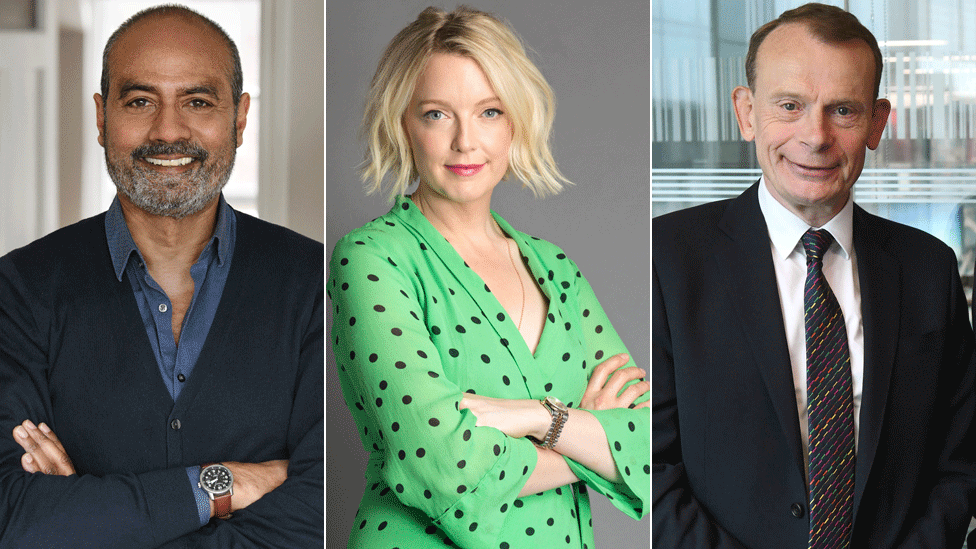BBC Annual Report: At a glance
- Published
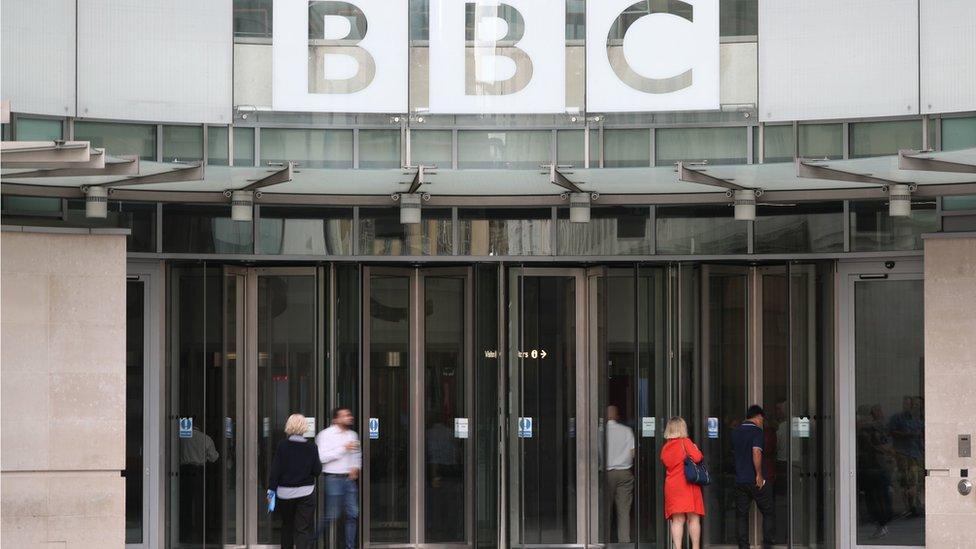
The BBC has published its annual report for 2018/2019 and while the pay for on-air talent is grabbing many of the headlines, it accounts for a fraction of the BBC's total spend.
Here are some other key figures from the 286-page document.

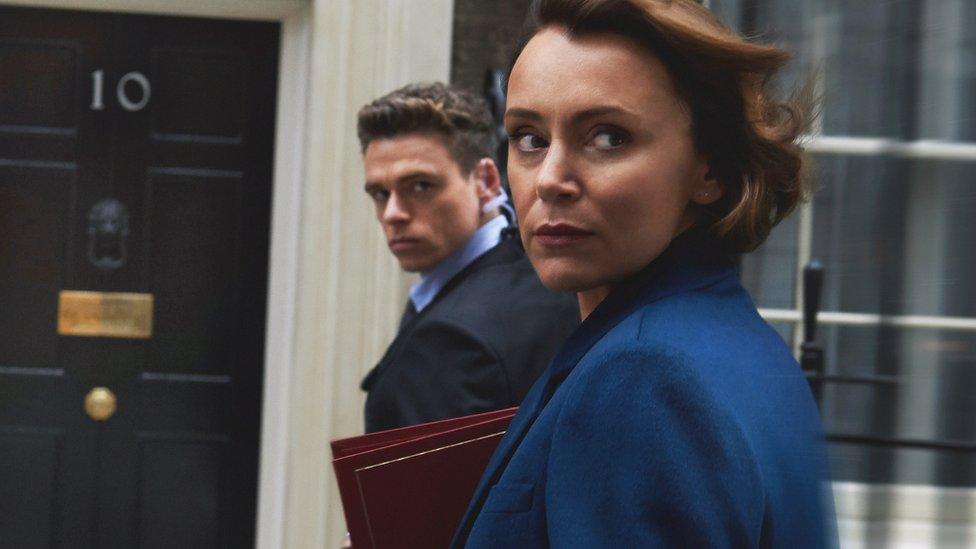
How are BBC services performing?
Overall, the number of people watching BBC television is falling across high and low income homes.
BBC One has seen its audience shrink by 2% since last year and BBC Two by 3%.
The biggest drop comes in audiences aged between 16-34 who watch BBC TV weekly, down from 60% to 56%. The same age group is also watching for a shorter period of time, down from an average of nearly three hours a week to two hours and 32 minutes.
From a gender perspective, there has been a joint fall, by 2% of men and women who watch the BBC weekly.
The same is said of BBC Radio where men and women over the age of 16 are listening to less radio and for shorter times, up to 30 minutes less than last year in most age groups.
Radio 1's reach has dipped by less than one percent while Radio 2 remains unchanged.
The BBC's online offering continue to perform well with 2% increases in usage by male and female audiences over the age of 18. There has been a 6% increase in online users from the C2DE demographic which includes working class and lower income households.
It has been a bumper year for iPlayer with 3.6bn programme requests, the most popular being Bodyguard. Killing Eve's first series had 42.5 million overall requests.
How much does this all cost?
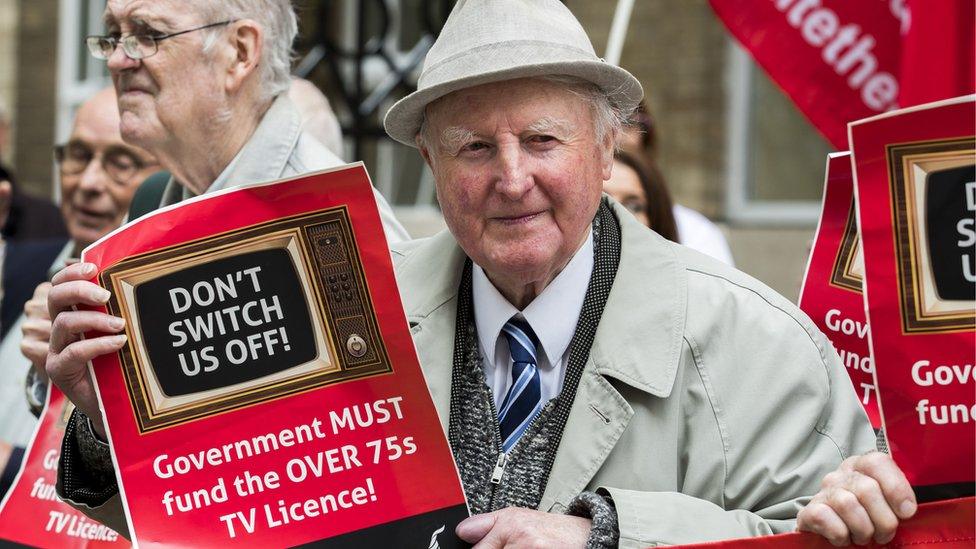
The BBC has seen the money from its annual licence fee drop by £140 million, from £3.83bn to £3.69bn - due partly to the government's phased reduction of funding for free TV licences for the over 75s, something which was imposed as part of the 2015 licence fee settlement
In June, the BBC said it will no longer fund free licences for up to 3.7 million pensioners, with only low-income households where one person receives the pension credit benefit eligible.
The announcement was attacked by the likes of Age UK, which set up a petition calling for the government to foot the bill.
The BBC's chairman David Clementi said on Tuesday: "The BBC has never paid for the concession, the government ended that funding, it was not the BBC," adding, "any future concession would be paid for by those who already pay the licence fee" which would mean cutting services.
He said cutting talent salaries to pay for the concession would make no difference, saving around £20 million of the £745 million required to fund free licences.
There is no question that audiences aged 55 and over are BBC television's most loyal consumers - with a staggering 92% reach in that age group, who watch nearly 13 hours of BBC TV a week, compared with the two and a half hours watched by 16-34 year olds.
Of the licence fee's £12.54 cost per household per month, £6.92 goes on television, £2.17 on radio and £1.24 on the World Service.
The BBC also saw a fall in income caused by the decline in the sale of consumer products, i.e. DVDs, to the tune of £33 million.
How is the BBC performing on gender equality and pay?
When it comes to those earning above £150,000 a year, the BBC is operating at a ratio of 60/40 in favour of men.
Across the board, women make up 47.9% of the BBC's workforce and 43.8% of leadership roles.
According to Lord Hall, the figures represent "rapid and real change".
He said the gender pay gap is 3% or less at all pay grades, adding "it's not the end of the process but the BBC is well ahead of other organisations".
Speaking to media editor Amol Rajan, Lord Hall said the BBC has resolved more than 90% of 32 pay disputes.
"It is inevitable that in any large organisation that you get people querying their pay but what we discovered as we look across 20,000 people we employ, we found 25 cases which were about equal pay and seven more we spotted and said we need to pay them more."
People from BAME backgrounds make up 15.3% of staff, people with disabilities 10.2% and people who identify as LGBT 10.8%.
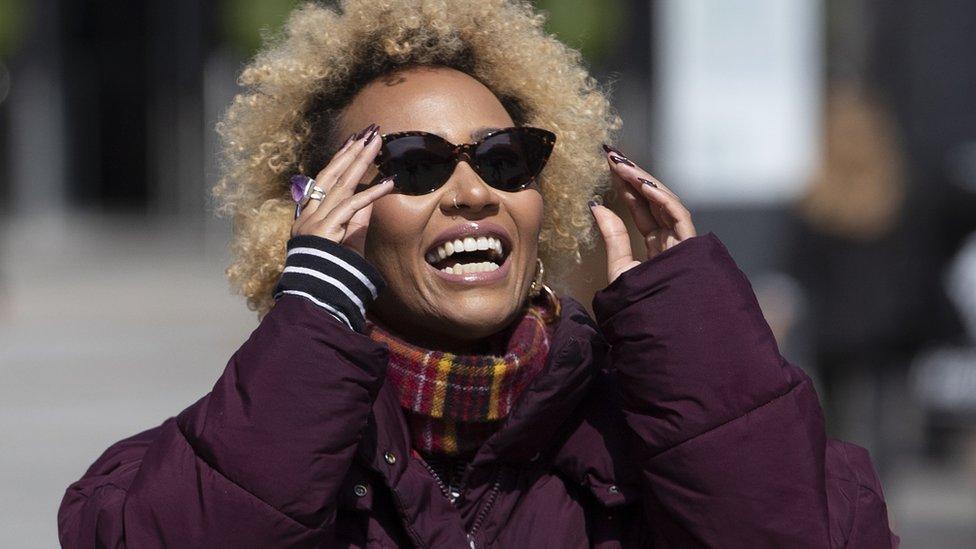
What of BBC Scotland?
In February, the BBC launched the digital channel BBC Scotland which the corporation said was "the BBC's biggest investment in Scotland for a generation".
Specialist programmes include Emeli Sande's Street Symphony, which follows the singer across Scotland as she picks a handful of buskers to put on a concert.
As the service is less than six months old, there are no official figures as yet, though BBC DG Tony Hall said "during its core hours of broadcast, from 7pm until midnight, it's the most watched digital channel in Scotland".
However, in June, it was reported that, external on one particularly quiet day in May, the new channel had an average audience of only 7,200 people.
A BBC spokesperson said at the time: "It's not unusual for digital channels outside the main five to occasionally record zero audiences."
"It really is finding new voices and a new dynamic in Scotland which I think is really impressive so I'm really proud of the channel," said Lord Hall on Tuesday.
In Tuesday's annual report, the BBC shows a two percent drop in households watching television and a four percent drop in radio, where audiences are listening for over an hour less per week than they were in 2017/18.
There was a similar drop of 4%, from 49% - 45% in households watching dedicated Scottish new services.
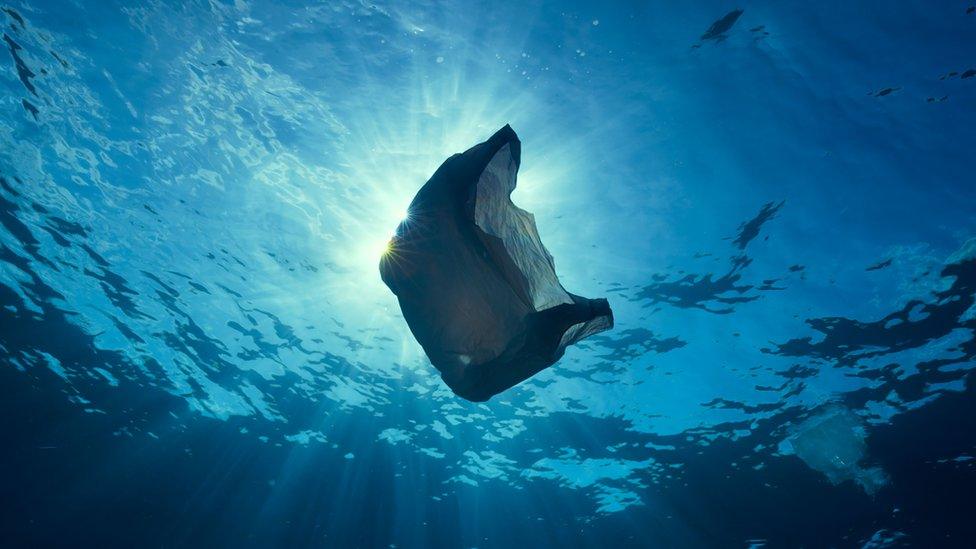
What is the BBC's environmental impact?
In news bulletins and and documentary programming, the BBC has drawn attention to climate change and, via Blue Planet II, the scourge of plastic in the oceans.
Since 2015/16, the BBC has reduced its carbon footprint by 78% but has yet to make an impact on its energy usage, which has a target of 10% by 2022.
BBC canteens have ditched plastic cups, containers and cutlery, which has seen waste reduced by 25% with 50% of waste recycled. That is a drop from last year which the BBC has said it will "take steps to address".
The BBC has also committed to no single-used plastic by 2022.
Related topics
- Published2 July 2019
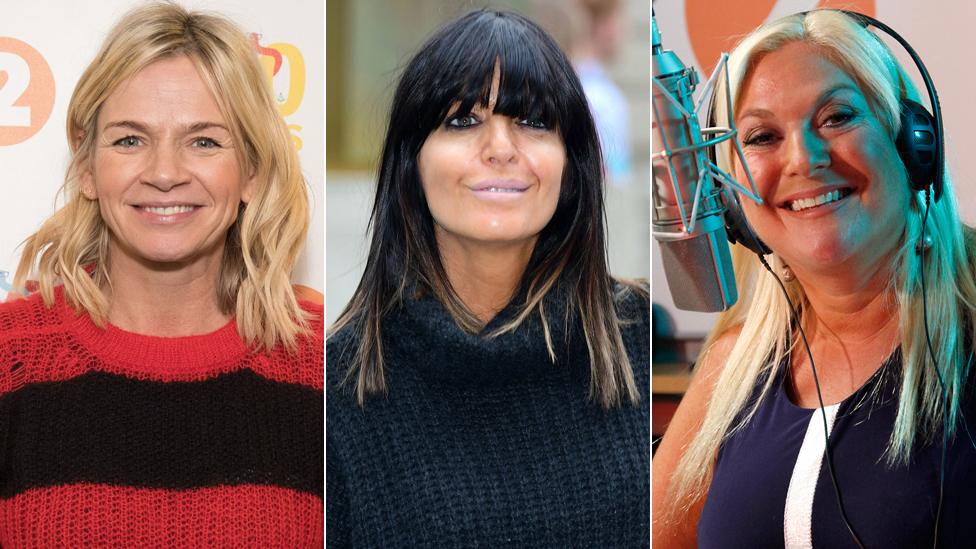
- Published2 July 2019
